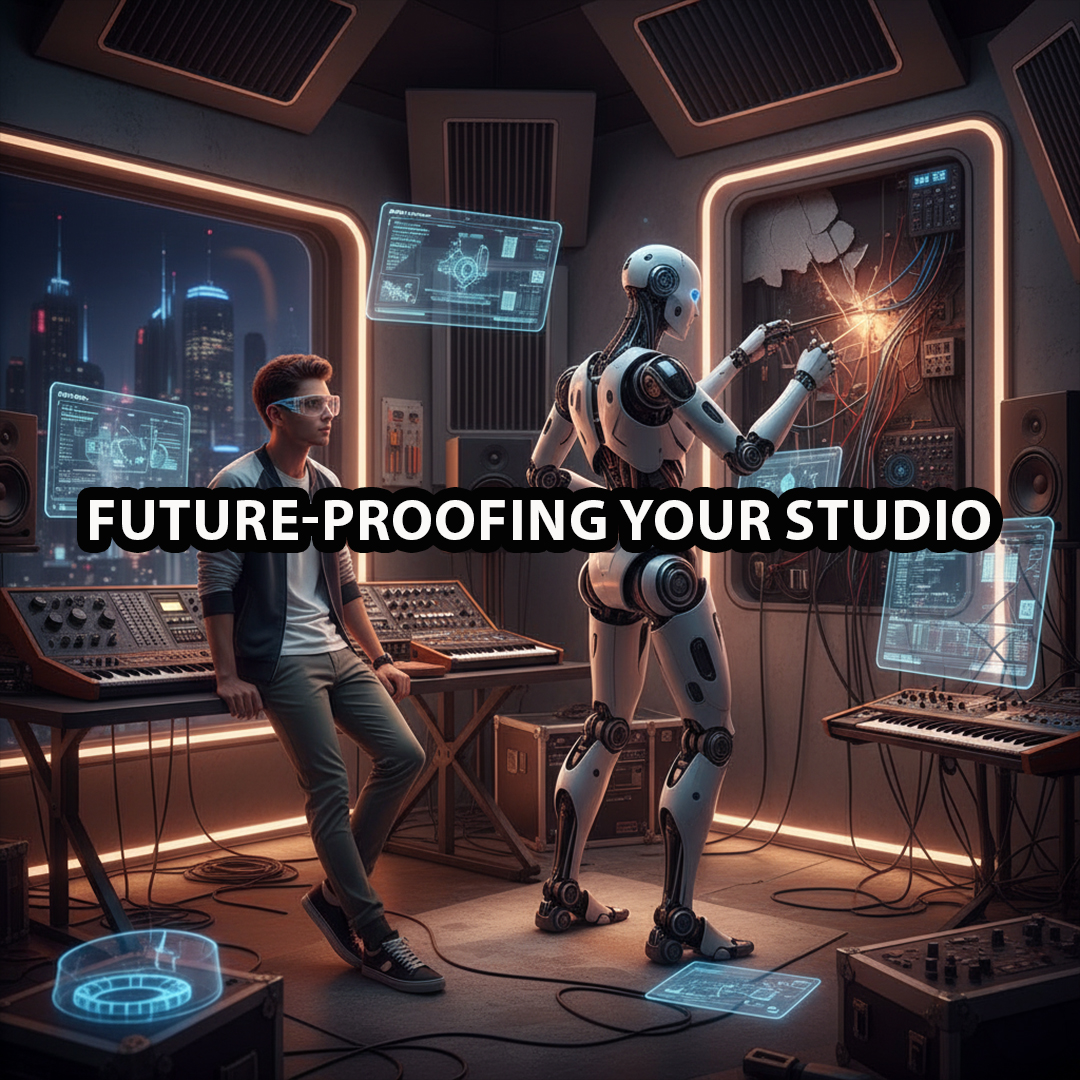The music industry is evolving at an unprecedented pace, driven by technological advancements and changing consumer preferences. For studio owners and audio engineers, staying ahead of the curve is not just an option—it’s a necessity. In this blog, we’ll explore the latest trends and technologies that can help you future-proof your studio, ensuring you remain competitive and relevant in a rapidly evolving market.
Understanding the Landscape of Change
The past few years have seen dramatic shifts in how music is produced, consumed, and marketed. As artists and audiences adapt to these changes, studios must also embrace new methodologies and technologies. Here are some key areas to focus on:
1. Remote Collaboration Tools
As the world becomes increasingly interconnected, remote collaboration is becoming the norm. Here’s why you should adopt these tools:

- Global Talent Pool: Remote collaboration allows you to work with talented musicians and engineers from around the globe, expanding your creative possibilities.
- Flexibility and Efficiency: With tools like Zoom, Audio Movers, and cloud-based DAWs, you can easily collaborate in real time without geographical constraints. This not only saves time but also streamlines the creative process.
2. Artificial Intelligence (AI) in Music Production
AI is reshaping various aspects of music production, from songwriting to mastering. Here’s how studios can leverage this technology:
- Smart Mixing Tools: AI-driven mixing platforms can analyze audio tracks and suggest adjustments, saving engineers valuable time during the mixing process.
- Automated Mastering Services: Platforms like LANDR use AI to deliver quick and efficient mastering solutions, allowing engineers to focus on the creative elements of their projects.
3. Virtual Reality (VR) and Augmented Reality (AR)
As immersive technologies continue to grow, incorporating VR and AR can offer unique experiences for artists and fans:
- Virtual Studio Sessions: Imagine hosting immersive recording sessions in a virtual environment, where artists can collaborate as if they were in the same room.
- Interactive Music Videos: AR can enhance music videos by creating interactive experiences, allowing fans to engage with content in new and exciting ways.
4. Diversity of Sound Formats
The rise of high-resolution audio formats and spatial audio technologies is transforming how music is consumed. To stay relevant, studios should:

- Invest in Spatial Audio Technologies: Embrace immersive audio formats like Dolby Atmos, which provide listeners with a 3D sound experience. This can set your studio apart and attract artists looking to create next-level audio.
- Explore New Distribution Channels: Platforms like Tidal and Apple Music are embracing lossless and high-res formats. By offering these options, you can cater to audiophiles and enhance the listening experience.
5. Sustainable Practices
As the music industry increasingly focuses on sustainability, adopting eco-friendly practices can enhance your studio’s appeal:
- Energy-Efficient Equipment: Invest in energy-efficient gear and studio designs that reduce your carbon footprint. This not only helps the environment but can also lower operational costs in the long run.
- Digital Distribution: Reduce physical product waste by focusing on digital distribution and streaming. This aligns with consumer trends while minimizing environmental impact.
6. Social Media and Content Marketing
In a digital-first world, effective marketing is essential for staying competitive. Here’s how to embrace this trend:

- Engage with Audiences: Use platforms like Instagram, TikTok, and YouTube to showcase your studio’s work, share behind-the-scenes content, and engage with potential clients. Regularly posting valuable content can build a loyal following and attract new artists to your studio.
- Utilize Data Analytics: Use analytics tools to understand your audience better and tailor your marketing strategies accordingly. This data-driven approach can enhance your outreach and maximize your studio’s visibility.
Conclusion: Embracing the Future
Future-proofing your studio requires a proactive approach to embracing new technologies and industry trends. By adopting remote collaboration tools, leveraging AI, exploring immersive audio formats, prioritizing sustainability, and enhancing your marketing efforts, you can ensure your studio remains competitive and relevant in a rapidly evolving market.
As you navigate these changes, remember that adaptability and innovation are key to success. Embrace the future of music production with an open mind, and watch your studio thrive in this exciting new era.
